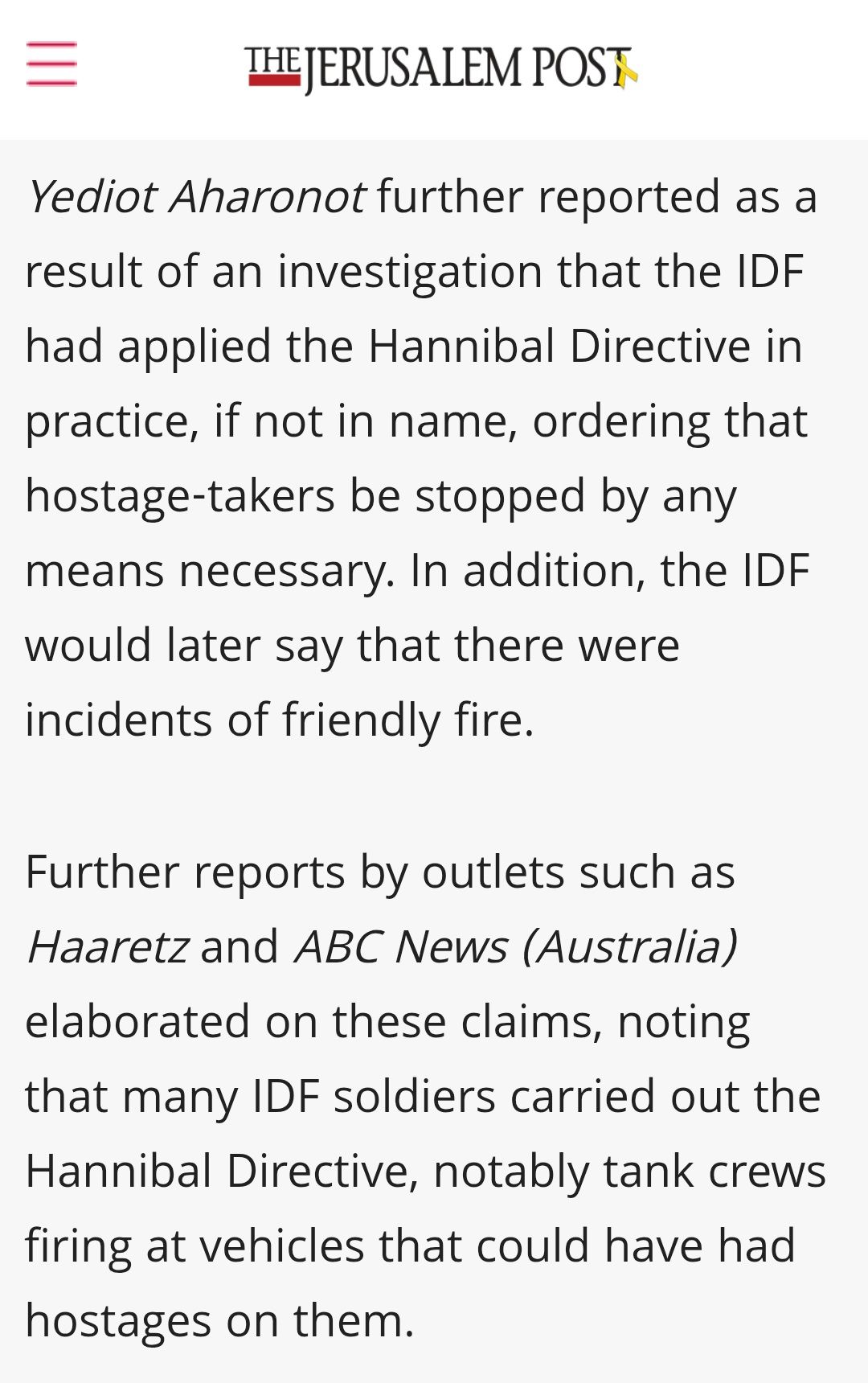In The Name of Allah, The Most Merciful, The Bestower of Mercy.
The Importance of Safety And Security In a Country
Security is a great blessing without which a person would not be able to lead a productive, fulfilling, and joyful life. As a result, Makkah and the Masjid Al-Haraam have been blessed by Allah, becoming a safe and sacred sanctuary. Allah says:
وَإِذْ جَعَلْنَا الْبَيْتَ مَثَابَةً لِّلنَّاسِ وَأَمْنًا وَاتَّخِذُوا مِن مَّقَامِ إِبْرَاهِيمَ مُصَلًّى ۖ وَعَهِدْنَا إِلَىٰ إِبْرَاهِيمَ وَإِسْمَاعِيلَ أَن طَهِّرَا بَيْتِيَ لِلطَّائِفِينَ وَالْعَاكِفِينَ وَالرُّكَّعِ السُّجُودِ
And [remember] when We made the House (the Ka’bah at Makkah) a place of resort for mankind and a place of safety. And take you (people) the Maqam (place) of Ibrahim (Abraham) [or the stone on which Ibrahim (Abraham) stood while he was building the Ka’bah] as a place of prayer (for some of your prayers, e.g. two Rak’at after the Tawaf of the Ka’bah at Makkah), and We commanded Ibrahim (Abraham) and Isma’il (Ishmael) that they should purify My House (the Ka’bah at Makkah) for those who are circumambulating it, or staying (I’tikaf), or bowing or prostrating themselves (there, in prayer). [Surah Al-Baqarah. Ayah 125]
Allah says:
فِيهِ آيَاتٌ بَيِّنَاتٌ مَّقَامُ إِبْرَاهِيمَ ۖ وَمَن دَخَلَهُ كَانَ آمِنًا ۗ وَلِلَّهِ عَلَى النَّاسِ حِجُّ الْبَيْتِ مَنِ اسْتَطَاعَ إِلَيْهِ سَبِيلًا ۚ وَمَن كَفَرَ فَإِنَّ اللَّهَ غَنِيٌّ عَنِ الْعَالَمِينَ
In it are manifest signs (for example), the Maqam (place) of Ibrahim (Abraham); whosoever enters it, he attains security. And Hajj(pilgrimage to Makkah) to the House (Ka’bah) is a duty that mankind owes to Allah, those who can afford the expenses (for one’s conveyance, provision and residence); and whoever disbelieves [i.e. denies Hajj (pilgrimage to Makkah), then he is a disbeliever of Allah], then Allah stands not in need of any of the ‘Alamin (mankind and jinns)]. [Surah Al-Imran. Ayah 97]
Allah [The Most High] says:
وَقَالُوا إِن نَّتَّبِعِ الْهُدَىٰ مَعَكَ نُتَخَطَّفْ مِنْ أَرْضِنَا ۚ أَوَلَمْ نُمَكِّن لَّهُمْ حَرَمًا آمِنًا يُجْبَىٰ إِلَيْهِ ثَمَرَاتُ كُلِّ شَيْءٍ رِّزْقًا مِّن لَّدُنَّا وَلَٰكِنَّ أَكْثَرَهُمْ لَا يَعْلَمُونَ
And they say: “If we follow the guidance with you, we would be snatched away from our land.” Have We not established for them a secure sanctuary (Makkah), to which are brought fruits of all kinds, a provision from Ourselves, but most of them know not. [Surah Al-Qasas. Ayah 57]
Allah [The Most High] says:
أَوَلَمْ يَرَوْا أَنَّا جَعَلْنَا حَرَمًا آمِنًا وَيُتَخَطَّفُ النَّاسُ مِنْ حَوْلِهِمْ ۚ أَفَبِالْبَاطِلِ يُؤْمِنُونَ وَبِنِعْمَةِ اللَّهِ يَكْفُرُونَ
Have they not seen that We have made (Makkah) a sanctuary secure and that men are being snatched away from all around them? Then do they believe in Batil (falsehood – polytheism, idols and all deities other than Allah), and deny (become ingrate for) the Graces of Allah?] [Surah Al-Ankabut. Ayah 67]
Allah [The Most High] says:
لِإِيلَافِ قُرَيْشٍ
إِيلَافِهِمْ رِحْلَةَ الشِّتَاءِ وَالصَّيْفِ
فَلْيَعْبُدُوا رَبَّ هَٰذَا الْبَيْتِ
الَّذِي أَطْعَمَهُم مِّن جُوعٍ وَآمَنَهُم مِّنْ خَوْفٍ
(It is a great Grace and Protection from Allah), for the taming of the Quraish; (And with all those Allah’s Grace and Protections for their taming, We cause) the (Quraish) caravans to set forth safe in winter (to the south), and in summer (to the north without any fear). So let them worship (Allah) the Lord of this House (the Ka’bah in Makkah). (He) Who has fed them against hunger, and has made them safe from fear. [Surah Quraish]
If someone has been granted physical well-being and safety in their surroundings, they have achieved all the blessings of this world. Salamah Bin Ubaidullaah Ibn Mihsan Al-Khatmiy narrated from his father that the Messenger [peace and blessings of Allah be upon him] said: “Whoever among you wakes up (in the morning) safe in his property, healthy in his body and has his daily nourishment, it is as if he has been granted the entire world”. [1]
When our upright leader Ibraaheem [peace be upon him] settled some of his offspring at this valley [i.e. Makkah], the first of his supplications was:
رَبِّ اجْعَلْ هَٰذَا بَلَدًا آمِنًا وَارْزُقْ أَهْلَهُ مِنَ الثَّمَرَاتِ مَنْ آمَنَ مِنْهُم بِاللَّهِ وَالْيَوْمِ الْآخِرِ ۖ قَالَ وَمَن كَفَرَ فَأُمَتِّعُهُ قَلِيلًا ثُمَّ أَضْطَرُّهُ إِلَىٰ عَذَابِ النَّارِ ۖ وَبِئْسَ الْمَصِيرُ
“My Lord, make this city (Makkah) a place of security and provide its people with fruits, such of them as believe in Allah and the Last Day.” He (Allah) answered: “As for him who disbelieves, I shall leave him in contentment for a while, then I shall compel him to the torment of the Fire, and worst indeed is that destination!] [Surah Al-Baqarah. Ayah 126]
This highlights the importance of safety for individuals, otherwise, Prophet Ibraaheem [peace and blessings of Allah be upon him] would not have repeatedly asked Allah to make it a reality in this land. If you observe lands where safety has been compromised, you will notice that people are unable to carry out their daily activities. Schools and markets are closed, and everyone remains in their homes. Those who have the means would quickly leave this land and relocate elsewhere. If you ask them, they will express their inability to live with their loved ones in a place where safety is absent. Security can only be ensured through two things: following Allah’s laws and obeying the rulers. The Messenger (peace and blessings be upon him) emphasized the importance of these two aspects in a Muslim’s life in the hadith reported by Irbaad Ibn Saariyah [may Allah be pleased with him] who said: Allah’s Messenger [peace and blessings of Allaah be upon him] gave us an admonition after the morning prayer –an admonition that made our hearts fearful and our eyes tearful. So, a man said, “Indeed, is this a farewell sermon, so what do you advise us?” He said, “I enjoin you to fear Allah and that you listen and obey, even if an Abyssinian slave (is made a ruler over you); for indeed he among you who lives long enough will see many differences. So, beware of newly invented matters (in the religion) because indeed it is misguidance. And whoever among you witnesses that, then it is obligated on him to adhere to my Sunnah and the Sunnah of the rightly guided Caliphs [i.e. AbuBakr, Umar, Uthmaan, and Ali], adhere to it with your molar teeth”. [2]
This hadeeth establishes the basis of security in Islam and it includes two important aspects: fear of Allah and obedience to the rulers. Fear of Allah rectifies a Muslim’s relationship with Allah, neighbors, and everything around them, and in the absence of Allah’s Shariah, destruction and corruption will prevail. Allah has warned those who abandon His Shariah and disobey His Messenger. Allah says:
وَضَرَبَ اللَّهُ مَثَلًا قَرْيَةً كَانَتْ آمِنَةً مُّطْمَئِنَّةً يَأْتِيهَا رِزْقُهَا رَغَدًا مِّن كُلِّ مَكَانٍ فَكَفَرَتْ بِأَنْعُمِ اللَّهِ فَأَذَاقَهَا اللَّهُ لِبَاسَ الْجُوعِ وَالْخَوْفِ بِمَا كَانُوا يَصْنَعُونَ
And Allah puts forward the example of a township (Makkah), that dwelt secure and well content; its provision coming to it in abundance from every place, but it (its people) denied the Favours of Allah (with ungratefulness). So Allah made it taste the extreme of hunger (famine) and fear, because of that (evil, i.e. denying Prophet Muhammad) which they (its people) used to do. [Surah An-Nahl. Ayah 112]
By listening to the rulers and obeying them (in good), all the affairs of the person’s life in his society will be in a state of normality. Listening to the rulers and obeying them (in good) is included in the subject matter of fear of Allah. Al-Hasan Al-Basri [may Allah have mercy upon him] used to say, “Indeed, Al-Hajjaaj is the punishment of Allah, so do not repel the punishment of Allaah with your own hands; rather you must submit and show humility because Allah [The Most High] said: [وَلَقَدْ أَخَذْنَاهُم بِالْعَذَابِ فَمَا اسْتَكَانُوا لِرَبِّهِمْ وَمَا يَتَضَرَّعُونَ – And Indeed We seized them with punishment, but they humbled not themselves to their Lord, nor did they invoke (Allaah) with submission to Him]”. [Surah Al-Muminoon. Ayah 76]
So, you meet someone who understands what security means and their understanding increases because of fear of Allah, and they are eager to obey the rulers in a good way. But when they don’t fully live up to their fear of Allah, their sense of security becomes lacking. When fear of Allah is fulfilled, they will receive the promise that Allah has mentioned in Surah An-Noor.
وَعَدَ اللَّهُ الَّذِينَ آمَنُوا مِنكُمْ وَعَمِلُوا الصَّالِحَاتِ لَيَسْتَخْلِفَنَّهُمْ فِي الْأَرْضِ كَمَا اسْتَخْلَفَ الَّذِينَ مِن قَبْلِهِمْ وَلَيُمَكِّنَنَّ لَهُمْ دِينَهُمُ الَّذِي ارْتَضَىٰ لَهُمْ وَلَيُبَدِّلَنَّهُم مِّن بَعْدِ خَوْفِهِمْ أَمْنًا ۚ يَعْبُدُونَنِي لَا يُشْرِكُونَ بِي شَيْئًا ۚ وَمَن كَفَرَ بَعْدَ ذَٰلِكَ فَأُولَٰئِكَ هُمُ الْفَاسِقُونَ
Allah has promised those among you who believe, and do righteous good deeds, that He will certainly grant them succession to (the present rulers) in the earth, as He granted it to those before them, and that He will grant them the authority to practice their religion, that which He has chosen for them (i.e. Islam). And He will surely give them in exchange a safe security after their fear (provided) they (believers) worship Me and do not associate anything (in worship) with Me. But whoever disbelieved after this, they are the Fasiqun (rebellious, disobedient to Allah). [Surah An-Noor. Ayah 55]
It is a well-known fact that (some aspects of the religion dealing with societal issues) cannot be established properly without a strong community of Muslims. And a strong community of Muslims cannot exist without a leader. This leader can only be effective if people listen to him and obey him in good. However, when people refuse to obey the ruler and prioritise their desires, it leads to corruption and a deviation from the right path. This disobedience is one of the major reasons for the downfall of both the land and its people. Al Hasan Al Basri [may Allaah have mercy upon him] said, “By Allah! The religion cannot be established except by way of rulers, even if they commit tyranny and oppression, due to the many affairs that Allah rectifies through them more than what they corrupt”.
Ibn Rajab [may Allah have mercy upon him] said, “There is (good and great advantage) in the worldly life when rulers are obeyed. And by way of it, the beneficial affairs related to the livelihood of the people are established and they utilise them as an aid through which they manifest their religion and obey their Lord”.
Disobedience to the rulers and putting oneself before them by fighting or other than that (is tantamount) to disobeying Allah and His Messenger, and opposition to that which Ahlus Sunnah Wal Jamaa’ah were upon – the pious predecessors. Preservation of security leads to brotherhood and mutual alliance between the Muslims. Allah [The Mighty and Majestic] says: [إِنَّمَا الْمُؤْمِنُونَ إِخْوَةٌ فَأَصْلِحُوا بَيْنَ أَخَوَيْكُمْ ۚ وَاتَّقُوا اللَّهَ لَعَلَّكُمْ تُرْحَمُونَ – The believers are nothing else than brothers (in Islamic religion). So, make reconciliation between your brothers, and fear Allah, that you may receive mercy]. [Surah Al-Hujuraat. Ayah 10]
Allah [The Most High] says:
وَالْمُؤْمِنُونَ وَالْمُؤْمِنَاتُ بَعْضُهُمْ أَوْلِيَاءُ بَعْضٍ ۚ يَأْمُرُونَ بِالْمَعْرُوفِ وَيَنْهَوْنَ عَنِ الْمُنكَرِ وَيُقِيمُونَ الصَّلَاةَ وَيُؤْتُونَ الزَّكَاةَ وَيُطِيعُونَ اللَّهَ وَرَسُولَهُ ۚ أُولَٰئِكَ سَيَرْحَمُهُمُ اللَّهُ ۗ إِنَّ اللَّهَ عَزِيزٌ حَكِيمٌ
The believers, men, and women are Auliya’ (helpers, supporters, friends, protectors) of one another, they enjoin (on the people) Al-Ma’ruf, and forbid (people) from Al-Munkar; they perform As-Salat and give the Zakat, and obey Allah and His Messenger. Allah will have His Mercy on them. Surely Allah is All-Mighty, All-Wise. [Surah At-Tawbah. Ayah 71]
Imaan is neither wishful thinking nor mere claims, rather it is what settles in the heart and actions testify to it. A person cannot be a true believer until he loves for his Muslim brother what he loves for himself and until he deals with the people in a manner he loves to be dealt with! It is well known that security is something sought after by everyone, therefore it is the responsibility of a Muslim that he is eager for the security of others so that he can receive security and safety for himself.
Also, preserving security in the land necessitates the fulfilment of trusts, whereas bringing about a state of insecurity is tantamount to treachery. Allah [The Most High] says:
يَا أَيُّهَا الَّذِينَ آمَنُوا لَا تَخُونُوا اللَّهَ وَالرَّسُولَ وَتَخُونُوا أَمَانَاتِكُمْ وَأَنتُمْ تَعْلَمُونَ
وَاعْلَمُوا أَنَّمَا أَمْوَالُكُمْ وَأَوْلَادُكُمْ فِتْنَةٌ وَأَنَّ اللَّهَ عِندَهُ أَجْرٌ عَظِيمٌ
يَا أَيُّهَا الَّذِينَ آمَنُوا إِن تَتَّقُوا اللَّهَ يَجْعَل لَّكُمْ فُرْقَانًا وَيُكَفِّرْ عَنكُمْ سَيِّئَاتِكُمْ وَيَغْفِرْ لَكُمْ ۗ وَاللَّهُ ذُو الْفَضْلِ الْعَظِيمِ
O you who believe! Betray not Allah and His Messenger, nor betray knowingly your Amaanaat (things entrusted to you, and all the duties which Allah has ordained for you). And know that your possessions and your children are but a trial and that surely with Allah is a mighty reward. O you who believe! If you obey and fear Allah, He will grant you Furqan a criterion [(to judge between right and wrong), or (Makhraj, i.e. making a way for you to get out from every difficulty)], and will expiate for you your sins, and forgive you, and Allah is the Owner of the Great Bounty. [Surah Al-Anfaal. Ayaat 27-29] [3]
Shaikhul Islam Ibn Taymiyyah [may Allah have mercy upon him] said, “Indeed it has been stated that ninety-nine years with an oppressive ruler is better than a single night without a ruler”. [4]
Al-Allaamah Saalih Al-Fawzaan [may Allaah preserve him] was asked: How do we reconcile the Hadith: “Whoever is killed while protecting his property, then he is a martyr”. [5] And the Hadith, “You should listen and obey the ruler even if he flogs your back and takes your wealth, then still hear and obey” [6]
Answer: “You should listen and obey the ruler even if he flogs your back and takes your wealth”, this is with the Muslim Ruler. (i.e. this is the manner the Muslim is expected to behave with the Muslim Ruler). As for protecting one’s wealth (by way of resistance), this is (done) with other than the Muslim Ruler. If an oppressor, a thief, a robber, or a highway robber wants to take your wealth, you defend (yourself) even if you are killed. If killed, you are a martyr. As for the Muslim Ruler, you do not resist. Even if your wealth is taken, you do not resist; rather exercise patience due to the greater evil (i.e. the greater evil that may come about from resisting). So, there is differentiation between the Muslim Ruler and someone among the people (i.e. oppression received from someone among the people).
Question: What do you say to the one who says: “Indeed, the hadith (i.e. the above hadith) nurtures the Muslim upon weakness”?
Answer: The Hadith nurtures the Muslim with obedience and strength because obedience to the Muslim Ruler is strength and not weakness. He leaves this (i.e. this resistance against the Muslim Ruler) for the sake of a universal good and (for the sake of) uniting the word of the Muslims. The people of vain desires want to do away with the authentic proofs so that they can safeguard their views. This is their intention. They bring doubts in the verses of the Qur’an and the ahaadith to safeguard their deviated views. [7]
Al-Allaamah Al-Izz Bin Abdis Salaam [may Allaah have mercy upon him] said, “Had it not been for the appointment of a ruler, the beneficial universal affairs would have been lost, universal corruption would have become the reality, the strong would have overcome the weak and the (immoral) ones would have overcome the noble (mannered) ones”. Shaikh Abdus-Salaam Burgess [may Allah have mercy upon him] said, “The explanation of this is that the majority of the children of Adam are inclined towards injustice and love of vengeance, and had it not been that there was a ruler who administers their affairs, they would have become like the beasts of the wild and fish of the sea—the strong eat the weak”. [8]
To be continued…InShaaAllah
[1] As-Saheehah. 2318
[2] Reported by Ahmad 3/126
[3] An Excerpt from “Silsilah Ar-Rasaa’il Al-Manhajiyyah Fin-Nus’hi Wal-Irshaad Wat-Taw’iyah”. pages 7–27
[4] Al-Fataawaa: 14/268
[5] Al-Bukhaari. Number 2480
[6] Sahih Muslim 4554
[7]: Explanation of the hadith: ‘’We were in a state of ignorance p.46-47. Questions and Answers section
[8] Aqeedah Ahlil Islam Feemaa Yajibu Lil-Imam: page 11





